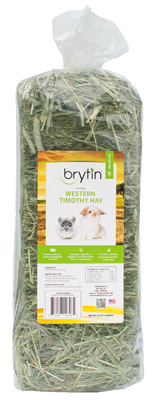Recommendations for new arrivals

This article contains advice for importers and recipients of Chinchillas.com air shipments, but much of the information applies to any new arrival. When you receive your chinchillas, inspect them carefully. Most airlines require you to sign a statement that says the animals are in good condition when you receive the animals. This statement is sometimes printed on the back of the waybill. Make sure the chinchillas are indeed in good condition before you sign. If any animals are lethargic, or display any signs or symptoms that appear abnormal, make sure to note this on the waybill or any other paperwork before you sign it, and please notify Chinchillas.com right away as well.
The chinchillas are coming from the Midwestern region of the United States, and they are acclimated to a cool to cold climate. Under the stress of travel, chinchillas are even more sensitive to high temperatures than normal. Therefore, do not allow the chinchillas to get warmer than 70 fahrenheit / 21 celsius, and keep them at 30%-40% humidity or less. Keep them out of direct sunlight and wind.
Chinchillas should not be handled or held for the first 2-3 weeks after arrival. Handling exposes the chinchillas to pathogens, adds to the stress of shipping, and can further disrupt their eating and drinking patterns. They should initially be kept in a quite place in their own cages, and away from bright lights, loud noises, and other animals. Make sure they are eating and drinking well before attempting to handle them. Included in the shipping crates of exports & air shipments is a small bag of Brytin Professional Chinchilla Feed. Mix 1/2 Brytin feed, and 1/2 the feed you intend to feed them, over the course of 10-14 days, so their gut microbiome has time to adjust to a new diet.  High fiber grass hay is essential. They can have unlimited clean dry grass hay like Timothy (preferably), Brome, Orchard Grass, Oat Hay, or Bermuda Grass. They can have 1-2 raisins a day, vitamin C, and/or probiotics for the first 10-14 days. We recommend that you use distilled water for the first two months. The pathogens in your local water are most likely different from what the chinchillas are resistant to in the Midwestern United States. Once the chinchillas are well established in their new environment and assuming you have suitable drinking water, start adding very small amounts of your own water, just 5% at first, then 10%, then 20%, etc... over the course of a few weeks, until they have adapted to the new water source. Make sure their water bottles are sterilized (heat, as from a dishwasher, works well) at least once a week, and that their water is changed every other day. New chinchillas are sometimes scared, and do well if they have a box to hide in on the lowest level of the cage, close to the food and water. When bringing new chinchillas into an established herd, it is recommended that you quarantine any new animals for 28 days.
High fiber grass hay is essential. They can have unlimited clean dry grass hay like Timothy (preferably), Brome, Orchard Grass, Oat Hay, or Bermuda Grass. They can have 1-2 raisins a day, vitamin C, and/or probiotics for the first 10-14 days. We recommend that you use distilled water for the first two months. The pathogens in your local water are most likely different from what the chinchillas are resistant to in the Midwestern United States. Once the chinchillas are well established in their new environment and assuming you have suitable drinking water, start adding very small amounts of your own water, just 5% at first, then 10%, then 20%, etc... over the course of a few weeks, until they have adapted to the new water source. Make sure their water bottles are sterilized (heat, as from a dishwasher, works well) at least once a week, and that their water is changed every other day. New chinchillas are sometimes scared, and do well if they have a box to hide in on the lowest level of the cage, close to the food and water. When bringing new chinchillas into an established herd, it is recommended that you quarantine any new animals for 28 days.
The chinchillas are used to drinking from glass water bottles with a stainless steel valve. If you do not use similar bottles, offer an open dish of water (changed daily) located near the hiding box until the chinchillas learn to use your watering system.
Please notify us by e-mail or phone to confirm that you have received your animals in good order. You will need an official photo ID to pick your chinchillas up from the airlines.
Feel free to call (785) 336-6833 (domestic), or +001.785.336.6833 (international), or e-mail us (sales@chinchillas.com) if you have any questions.
Brytin chinchilla products are available within the United States at Amazon, Chewy, or through the Chinchillas.com E-store. To find Brytin chinchilla products outside the United States, click here.